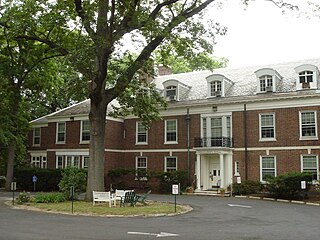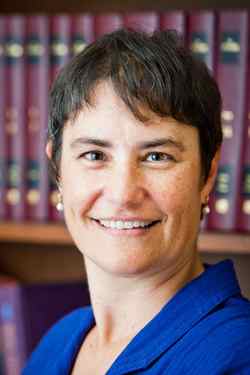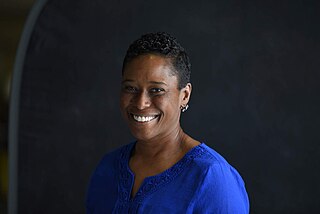The subject of homosexuality and Judaism dates back to the Torah. The book of Vayikra (Leviticus) is traditionally regarded as classifying sexual intercourse between males as a to'eivah that can be subject to capital punishment by the current Sanhedrin under halakha.

Mordecai Menahem Kaplan was a Lithuanian-born American rabbi, writer, Jewish educator, professor, theologian, philosopher, activist, and religious leader who founded the Reconstructionist branch of Judaism along with his son-in-law Ira Eisenstein. He has been described as a "towering figure" in the recent history of Judaism for his influential work in adapting it to modern society, contending that Judaism should be a unifying and creative force by stressing the cultural and historical character of the religion as well as theological doctrine.

Reconstructionist Judaism is a Jewish movement based on the concepts developed by Rabbi Mordecai Kaplan (1881–1983) that views Judaism as a progressively evolving civilization rather than just a religion. The movement originated as a semi-organized stream within Conservative Judaism, developed between the late 1920s and the 1940s before seceding in 1955, and established a rabbinical college in 1967. Reconstructionist Judaism is recognized by many scholars as one of the five major streams of Judaism in America alongside Orthodox, Conservative, Reform, and Humanistic.

Women in Judaism have affected the course of Judaism over millenia. Their role is reflected in the Hebrew Bible, the Oral Law, by custom, and by cultural factors. Although the Hebrew Bible and rabbinic literature present various female role models, religious law treats women in specific ways. According to a 2017 study by the Pew Research Center, women account for 52% of the worldwide Jewish population.
The relationships between the various denominations of Judaism are complex and include a range of trends from the conciliatory and welcoming to hostile and antagonistic.
Jewish leadership has evolved over time. Since the destruction of the Second Temple in Jerusalem in 70 CE, there has been no single body that has a leadership position over the entire Jewish diaspora. Various branches of Judaism, as well as Jewish religious or secular communities and political movements around the world elect or appoint their governing bodies, often subdivided by country or region.

The Reconstructionist Rabbinical College (RRC) is a Jewish seminary in Wyncote, Pennsylvania. It is the only seminary affiliated with Reconstructionist Judaism. It is accredited by the Commission on Higher Education of the Middle States Association of Colleges and Schools. RRC has an enrollment of approximately 80 students in rabbinic and other graduate programs.
Rabbi Ira Eisenstein was an American rabbi who, along with his mentor and—through his marriage to Judith Kaplan—father-in-law, Rabbi Mordecai Kaplan, founded Reconstructionist Judaism over a period spanning the late 1920s through the 1940s. Reconstructionist Judaism formally became an independent denomination within Judaism with the foundation of the Reconstructionist Rabbinical College in 1968—for which Eisenstein served as founding president.

The World Union for Progressive Judaism (WUPJ) is the international umbrella organization for the various branches of Reform, Liberal and Progressive Judaism, as well as the separate Reconstructionist Judaism. The WUPJ is based in 40 countries with 1,275 affiliated synagogues, of which 1,170 are Reform, Progressive, or Liberal and 105 Reconstructionist. It claims to represent a total of some 1.8 million people, both registered constituents and non-member identifiers. The WUPJ states that it aims to create common ground between its constituents and to promote Progressive Judaism in places where individuals and groups are seeking authentic, yet modern ways of expressing themselves as Jews. It seeks to preserve Jewish integrity wherever Jews live, to encourage integration without assimilation, to deal with modernity while preserving the Jewish experience, and to strive for equal rights and social justice.
Jewish feminism is a movement that seeks to make the religious, legal, and social status of Jewish women equal to that of Jewish men in Judaism. Feminist movements, with varying approaches and successes, have opened up within all major branches of the Jewish religion.
Dan Ehrenkrantz is an American Reconstructionist rabbi, currently serving as the outgoing president of the Reconstructionist Rabbinical College in Wyncote, Pennsylvania.
Beth Israel Congregation is a Conservative synagogue located at 385 Pottstown Pike in Upper Uwchlan Township, Chester County, Pennsylvania, in the United States. The congregation was founded in Coatesville in 1904 as Kesher Israel by Eastern European immigrants, and formally chartered as "Beth Israel" in 1916. It constructed its first building in 1923, and expanded it after World War II.

Women rabbis are individual Jewish women who have studied Jewish Law and received rabbinical ordination. Women rabbis are prominent in Progressive Jewish denominations, however, the subject of women rabbis in Orthodox Judaism is more complex. Although a significant number of Orthodox women have been ordained as rabbis, many major Orthodox Jewish communities and institutions do not accept the change. In an alternative approach, other Orthodox Jewish institutions train women as Torah scholars for various Jewish religious leadership roles. These roles typically involve training women as religious authorities in Jewish Law but without formal rabbinic ordination, instead, alternate titles are used. Yet, despite this alteration in title, these women are often perceived as equivalent to ordained rabbis. Since the 1970s, over 1,200 Jewish women have been ordained as rabbis.
The first openly lesbian, gay, bisexual, and transgender clergy in Judaism were ordained as rabbis and/or cantors in the second half of the 20th century.

Rabbi Jason Klein became the first openly gay man chosen to head a national rabbinical association of one of the major Jewish denominations in the United States in 2013, when he was chosen as president of the Reconstructionist Rabbinical Association. He was also the first Hillel director to hold the presidency, the chief volunteer position of the organization. As of his election as president, Klein was the executive director of Hillel at UMBC, the University of Maryland, Baltimore County, a post he held from 2006 until 2013. He served as president of the Reconstructionist Rabbinical Association for two years—until 2015. As of July 2013 he became the Director of the Center for Jewish Life at JCP Downtown, the Jewish Community Project of Lower Manhattan, where he served until 2018.
This is a timeline of women rabbis:

Deborah Waxman is an American rabbi and the president and CEO of Reconstructing Judaism. Waxman was inaugurated as the president of both on October 26, 2014. The ceremony took place at the National Museum of American Jewish History in Philadelphia. Waxman is believed to be the first woman rabbi and first lesbian to lead a Jewish congregational union, and the first lesbian to lead a Jewish seminary; the Reconstructionist Rabbinical College is both a congregational union and a seminary. She previously served as the vice-president for governance for the Reconstructionist Rabbinical College. In 2015 she was named as one of The Forward 50.
Or Haneshamah, officially, Or Haneshamah – Ottawa's Reconstructionist Community, is a Jewish Reconstructionist synagogue located in Ottawa, Ontario, Canada. The congregation is one of only three affiliated Reconstructionist congregations in Canada, and the only Reconstructionist congregation in Ottawa. Founded in 1987, Or Haneshamah describes itself as a progressive, liberal, egalitarian, inclusive, multi-generational congregation notable for welcoming all Jews, including unaffiliated, intermarried, and LGBTQ individuals and families. As of 2016, the congregation's membership constituted approximately 90–100 households.
This is a timeline of LGBT Jewish history, which consists of events at the intersection of Judaism and queer people.

Sandra Lawson is a rabbi and the first Director of Racial Diversity, Equity and Inclusion at Reconstructing Judaism. She previously served as Associate Chaplain for Jewish Life at Elon University. Lawson became the first openly gay, female, and black rabbi in the world in 2018. She is a veteran, vegan, sociologist, personal trainer, food activist, weightlifter, author and musician.









